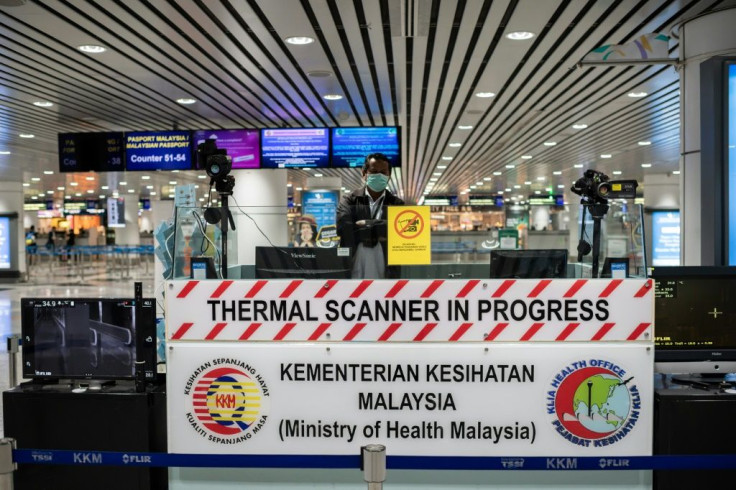Coronavirus Malaysia Update: Infections Spike After Massive Religious Event

From Feb. 27 until March 1, about 16,000 people attended a Muslim religious gathering in Sri Petaling Mosque in Malaysia. Two weeks later, health authorities in the country reported a spike of 190 new confirmed cases of COVID-19 upping the total to 428 from 238 the previous day. Neighboring Singapore, about 210 miles to the southeast, has responded by announcing tighter border restrictions.
Malaysian health authorities have said that about 14,500 of the participants were Malaysian with about 1,500 foreign visitors. Brunei and Singapore have reported new cases linked to the gathering and that led to Singapore announcing that travelers entering from other ASEAN countries, Japan, Switzerland, and the U.K. will be subject to a 14-day notice to stay home in self-quarantine.
The notice may seem like a light measure but those receiving it should take heed as Singapore is quite severe in punishments for minor offenses like chewing gum and jaywalking.
The bigger issue is that the restrictions do not apply to people entering Singapore through land and sea checkpoints. Singaporean National Development Minister Lawrence Wong told the National Press Center that some “special considerations” would be needed due to the proximity and interdependency between the two countries.
Wong, who co-chairs a multi-ministry task force to tackle the virus, said, “We do need precautions to be taken at these checkpoints, but it is going to be more complex given the high volume of people moving in and out of these checkpoints. On our land crossing alone, 300,000 people move across the checkpoints every day.”
Singapore is also canceling activities at its mosques for two weeks when some of its citizens who attended the Malaysian event later tested positive for the virus. In Brunei, 40 people who attended the gathering were infected, according to the Borneo Bulletin.
On Saturday, Malaysia said about 4,900 Malaysians who attended the event were identified, with just over 3,000 having been screened or tested. More than 1,600 had displayed respiratory tract infection symptoms, and 137 have been sent to hospitals.
People of all faiths are praying for the end of the coronavirus pandemic to run its course and for life to return to normal, but the SARS-COVID-2 virus does not seem to respond to any divine intervention. And with a 10-14 day estimated incubation period where infected people show no symptoms but are still highly contagious, they will have ample opportunity to spread the virus at religious gatherings several times until they fall ill.
Handwashing and "social distancing” appear to be the best weapons against the virus as border controls have proven ineffective.
© Copyright IBTimes 2024. All rights reserved.





















